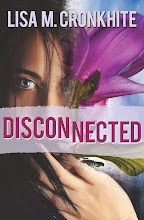Do
you worry about death and dying? (Maybe not so much about yourself as you do
with your loved ones.)
Are
you constantly thinking of solving things? Always looking for the answer,
whatever it may be. You just want peace of mind, and just want to know.
Do
you like watching Mystery/ Suspense movies, TV shows, etc? Like even though you
cringe at the thought of murder, you’re fascinated by what happened. Or you
want to find out why? Why did it happen? Who did it? What was their motive? Was
it planned? How much premeditation was involved?
Questions,
about questions. If you’ve answered yes to some of these questions or have
asked yourself the same thing (about certain things in life) then you may be a
mystery/suspense writer. The best way to get some of these fears out of your
mind is to write them down. It doesn’t have to be a story just yet. Just
something you can spindle from your mind and just let it out. Get it out of you
like it’s some poison you’re sucking out. Spit it out on paper (or the
computer, or whatever device you want to use.)
Once
you’ve decided you’d like to write a YA mystery, by all means, start writing!
This hopefully will apply to every mystery writer too.
I
think it’s important to start with a conflict right away. What’s going on with
your main character? What is his or her purpose in this fictional world you are
creating? Why is your main character around? Is she/he lost and needs to find a
way out? In danger? Witnessed a murder? Needs to solve a murder? A missing
case? What is missing from your character? If you’re constantly asking
questions, this is wonderful news! As you’re writing this out, you can outline
or write by the seat of your pants. Whatever way is going to make you write. That
is the most important thing. Now, once you’ve mapped out how to go (whether in
mind or notes) I want you to remember, leave things open. Maybe don’t answer
all of your questions for your novel. Save that for the big reveal at the end.
In YA, you have to keep the reader guessing, all the way to the very end. Don’t
you want to keep guessing too? Even if
that means not answering a key question to the very last line in the book.
In
YA, the pacing needs to be just right. It should be in a faster tempo, but not
too fast. Then you might fall short of word count. Standard word counts for YA
novels are between 40,000 and 90,000. Fantasy and Sci-fi tend to run higher.
For pacing and trying to cut down. If you think your pacing is too fast, slow
it down with more word power. Describe things a little more, have the character
do more action. Move them around more. Try to pay more attention to detail. If
you think your pacing is too slow, well then, cut down on some details. Maybe
you have too much. Is it a page and a half for the MC to get to the window?
Plotting
and planning. Again, always leave room for improvement. If and or when you
write an outline, don’t be confined to it. Allow some breathing room. When you’re
putting your outlining into writing, don’t be afraid to steer away from it. You
might find when you’re actually writing it out, some things fall into place
better. Better than the outline you’ve created. If you’re a panster, be careful
not to write yourself into a wall. Perhaps leave writing sessions mid chapter,
so you can stew about it more. Then when you come back, you could put more into
it. Don’t wear yourself out so much so to the point you don’t want to come back
to your writing at all. This is best for plotting and planning. I think the
best plotting and planning is when you’re stewing your brains out on it, to the
point you must write it out (suck the poison out.) So again, don’t overdo your
writing. Maybe only do it for a block of time. It’s also a good idea (you certainly
don’t have to, but) it’s a good idea to give word count goals too. Long term
goals. (I’m going to write a 50K novel in three months.) And short term goals.
(I’m going to write at least 500 words a day) If it doesn’t match up to what
you’ve intended, always praise yourself for what you did do. That in itself is an accomplishment.
Another
important thing to mystery writing is giving your character clues. Make them
the detective. Keep them actively looking for clues as to what happened. If it’s
one thing I’ve learned from my lovely editor, Ellen Larson, it’s don’t let it
all happen. The main character must find out for his or herself. That is what
the amateur sleuth is all about. Good luck on writing your mystery/suspense novel.
And remember, above all else, keep writing and don’t give up!

No comments:
Post a Comment